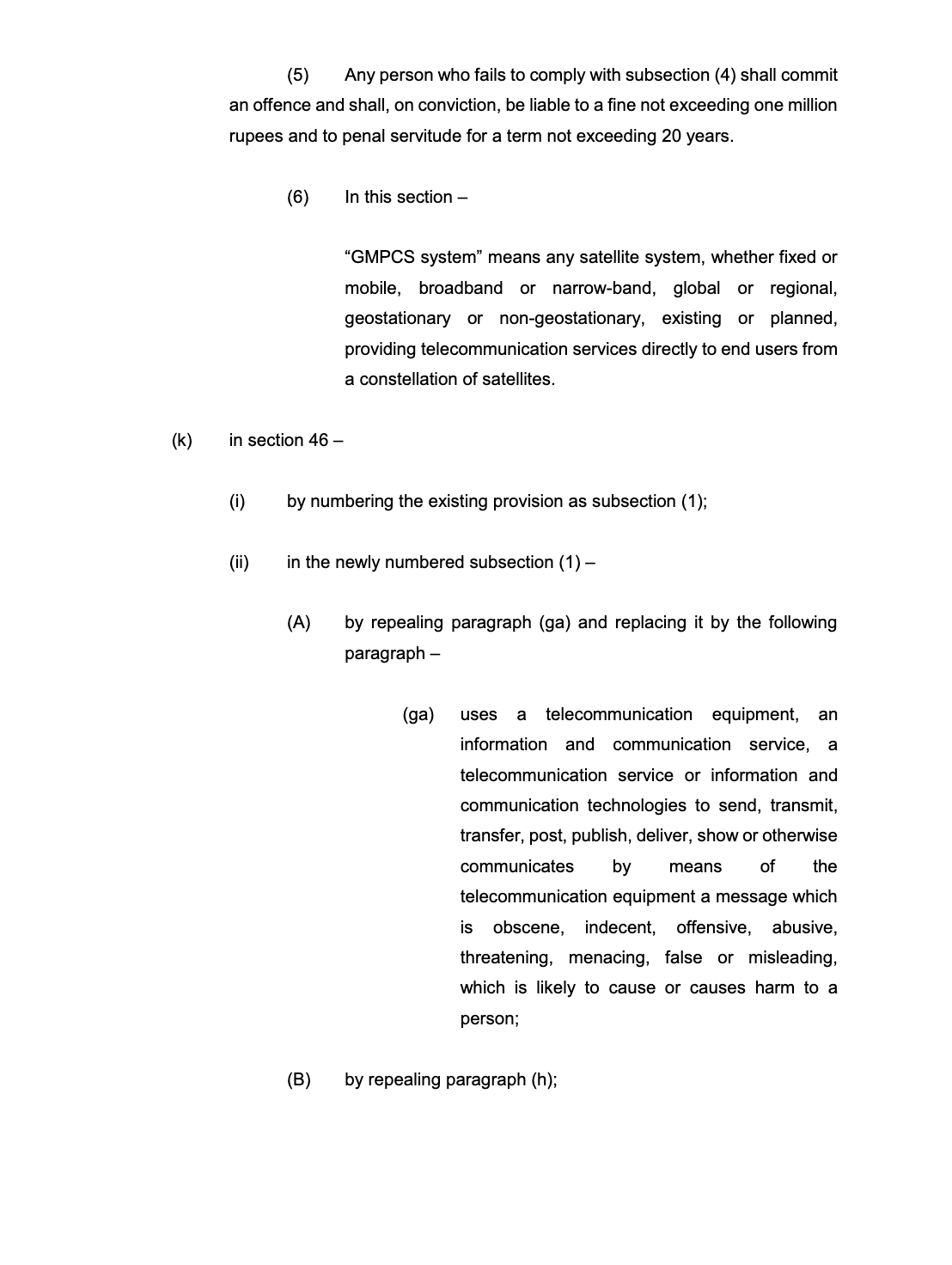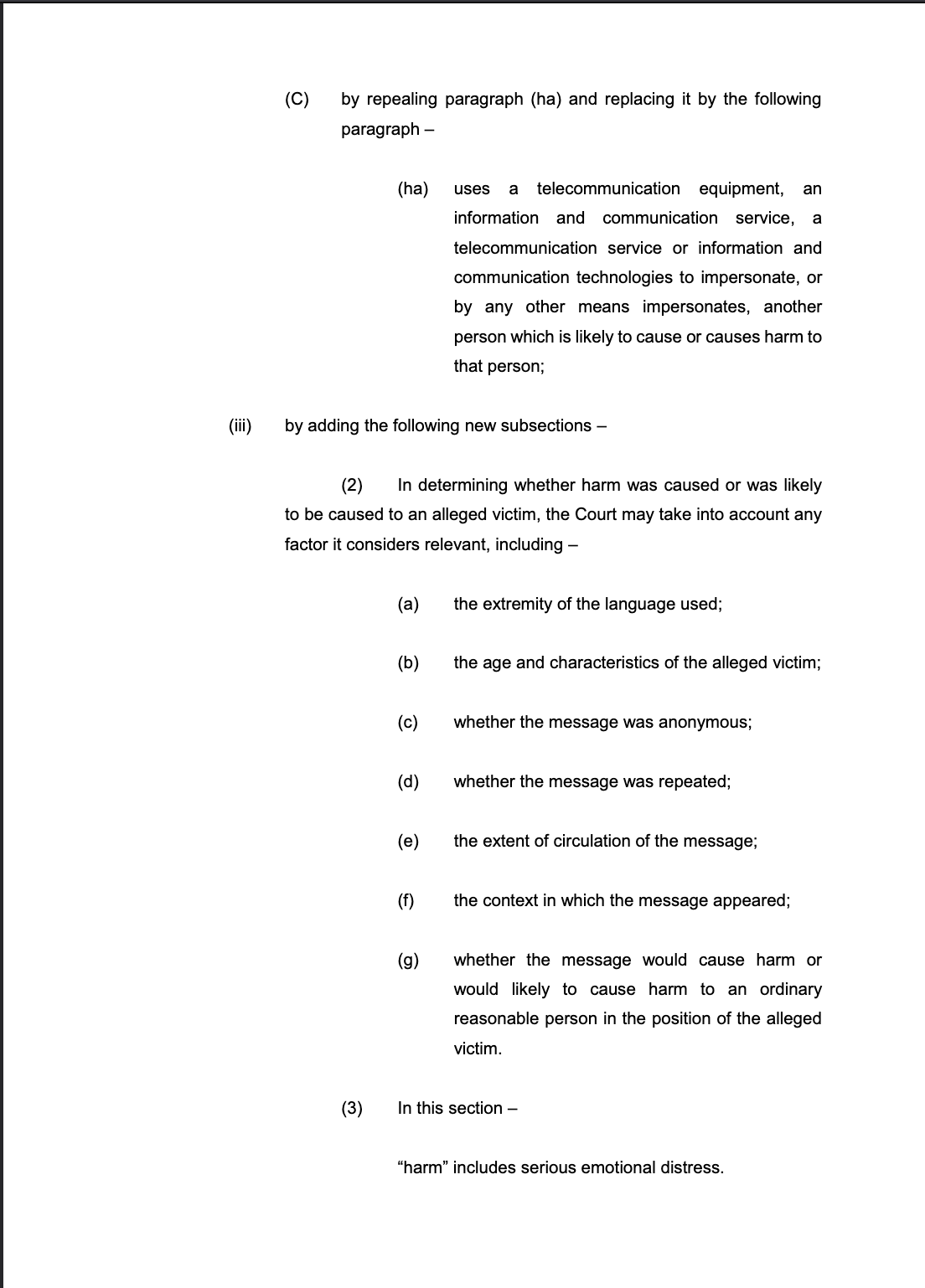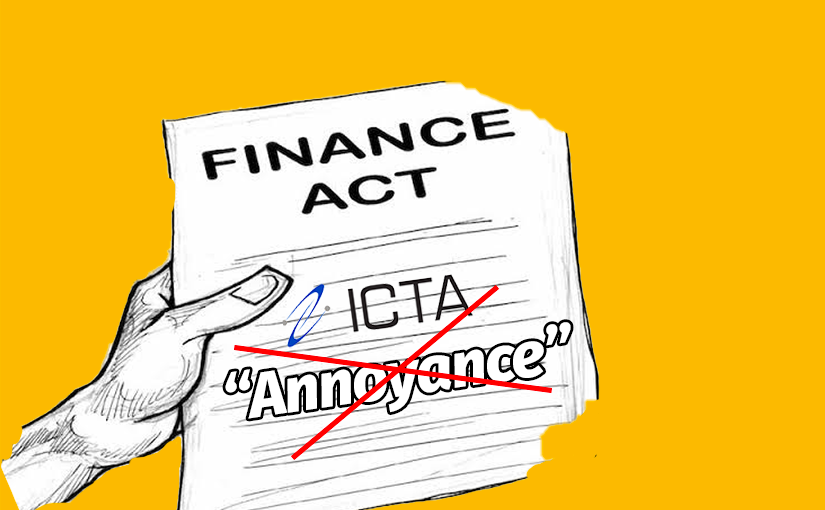It took a lawyer, considered close to the government, to drop an apparently innocuous statement during a radio debate to generate these questions.
The latter actually stated on Radio Plus in January 2023 that the term "annoyance" written in the ICT Act - which had caused controversy at its introduction due to its wide, imprecise scope - had been removed from this law.
In 2018, vague terms such as "annoyance," "distress," or "anxiety" were included in this law through what appears to be an attempt by Pravind Jugnauth's government to regulate electronic messages and publications, including social media posts.
Anyone who felt annoyed, stressed, or anxious because of online communication could file a complaint.
As a result of a plaint by majority deputy Marie Alexandra Tania Diolle - who had said she felt "annoyed" by a publication - the internet user Farihah Ruhomaully was arrested by the police.
The vagueness of these terms was pointed out by the Supreme Court in a judgment delivered in May 2021.
The case concerns unionist Vinod Seegum, convicted of three fines in the Intermediate Court in a trial brought by the State, which saw his sentence overturned on appeal.
Judges David Chan Kan Cheong and Karuna Devi Gunesh-Balaghee pointed out section 46(h)(ii) of ICT Act, which comprised the terms « annoyance, humiliation, inconvenience, distress or anxiety ».
They ruled that the concerned section was "cast so widely" that it could relate, for example, to "a football fan who sends a message to another football fan for the purpose of winding him up." This could generate annoyance... and thus be the source of prosecution.
In fact, they ruled that :
"Section 46(h)(ii) of ICTA (...) must be struck down as unconstitutional, being in breach of the principle of legality implied under section 10(4) of the Constitution." A section that, among other things, provides for laws to be applied in a fair manner.
"Due to its lack of precision and clarity, section 46(h)(ii) breaches the principle of legality and deprives a citizen of the protection of the law, as secured under section 10 of the Constitution".
This section of the law and its unconstitutional, vague terms seemed to have been made obsolete by this judgment.
Therefore, amendments were brought to the ICT Act, in a batch of amendments included in the Finance Bill 2021.
The confirmation had to be sought from the impressive list of extensive amendments made through the Finance Bill 2021. A meticulous exercise because the exact terms are not mentioned.
At point 39 of the Finance Bill, which concerns the ICT Act, it is indicated that two paragraphs - 46 (ga) and 46 (ha) - of the law text had been amended, while another - 46 (h) - had been cancelled.
These extracts all concerned the mention of "annoyance," but also those of "humiliation, inconvenience, distress or anxiety."
Section 46 (ga) of ICT Act stated that a person committed an offence if they used "telecommunication equipment" to "send, deliver or show a message" that "is likely to cause or causes annoyance, humiliation, inconvenience, distress or anxiety to any person."
The next paragraph (h) further extended the scope of this law. The same occured for the next paragraph (ha), which also retained the notion of "cause annoyance, humiliation, inconvenience, distress or anxiety".
Through the Finance Bill 2021, amendments have been made to replace paragraph (ga). In particular, the terms "annoyance" and "humiliation, inconvenience, distress or anxiety" have been removed.
Modifications also concern paragraph (ha) with the removal of the terms "annoyance, humiliation, inconvenience, distress or anxiety."
As for paragraph (h) - which mentions "which is likely to cause or causes annoyance, humiliation, inconvenience, distress or anxiety to that person" - it has simply been "repealed".
Paragraph 46 (ga) previously stated: "(Any person who) uses telecommunication equipment to send, deliver or show a message which is obscene, indecent, abusive, threatening, false or misleading, which is likely to cause or causes annoyance, humiliation, inconvenience, distress or anxiety to any person."
Paragraph 46 (ga) was amended to read: "(Any person who) uses telecommunication equipment, an information and communication service, a telecommunication service or information and communication technologies to send, transmit, transfer, post, publish, deliver, show or otherwise communicates by means of the telecommunication equipment a message which is obscene, indecent, offensive, abusive, threatening, menacing, false or misleading, which is likely to cause or causes harm to a person."
Paragraph 46 (ha) previously stated: "(Any person who) uses an information and communication service, including telecommunication service, to impersonate, or by any other means impersonates, another person which is likely to cause or causes annoyance, humiliation, inconvenience, distress or anxiety to that person." Paragraph 46 (ha) was amended to read: "(Any person who) uses telecommunication equipment, an information and communication service, a telecommunication service or information and communication technologies to impersonate, or by any other means impersonates, another person which is likely to cause or causes harm to that person."
Paragraph 46 (h) previously stated: "(Any person who) uses, in any manner other than that specified in paragraph (ga), an information and communication service, including telecommunication service, – (i) for the transmission or reception of a message which is grossly offensive, or of an indecent, obscene or menacing character; or (ii) which is likely to cause or causes annoyance, humiliation, inconvenience, distress or anxiety to that person; (iii) for the transmission of a message which is of a nature likely to endanger or compromise State defence, public safety or public order."
Paragraph 46 (h) was repealed by Act No. 15 of 2021.







